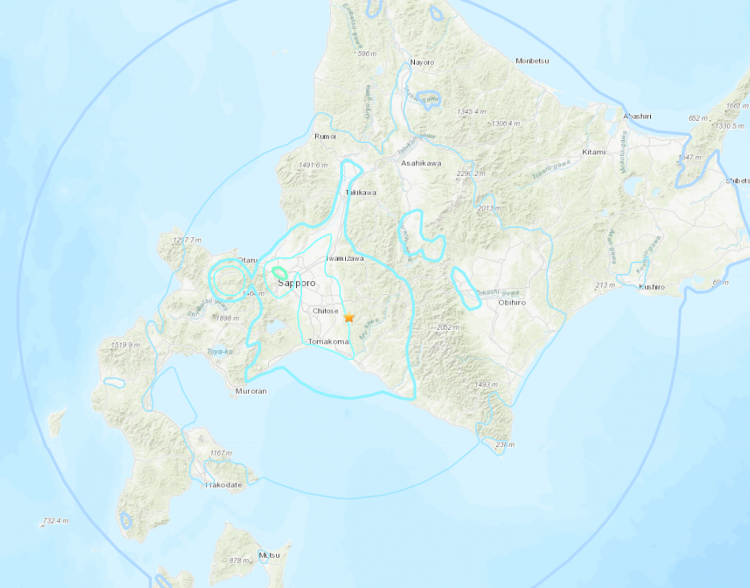Japan's northern Island was shocked by a magnitude 5.5-magnitude earthquake on Thursday. Authorities said that there was no tsunami warning and no immediate injuries or damages to properties reported.
The United States Geological Survey (USGS) said that the depth of the earthquake is around 41 kilometers it shook Japan at 9:22 p.m. USGS also said that the epicenter of the quake is around 55 kilometers southeast of the city of Sapporo. Japan's meteorological agency confirmed that the country is not at risk of a tsunami after the earthquake.
The Meteorological Agency said that the magnitude 5.8 quake measured lower 6 on the seismic intensity scale to 7 in the town of Atsuma, located in Hokkaido's eastern Iburi region.
Yoshihide Suga, Japan's Cabinet Secretary, told reporters in Tokyo after the aftermath that the government is doing its best to grasp the situation but, so far, there has been no report of major damage. He also said that there was no detected abnormality at the nuclear plants in the region. He also added that the government was prepared to conduct rescue operations if needed.
In Hokkaido, the services of the Shinkansen Bullet train services were suspended temporarily but there was no report of a major blackout. However, the Jiji news agency reported that in the towns of Niikappu and nearby Atsuma, the earthquake triggered landslides but, in luck, there were no damages in the households. The public broadcaster NHK released footage showing lights flickering on and off in a town located close to the epicenter.
Hokkaido was also struck by a powerful 6.6-magnitude quake in September last year which triggered landslides that caused houses to collapsed and that has killed not less than 40 individuals. Japan is locations at the junction of four tectonic plates and it experiences series of earthquakes every year. The strong tremors made little damage to homes and establishments in Japan because of the strict implementation of its building code.
According to experts, the earthquake on Thursday feels like an aftershock on the stronger one in September. Kosher Yamaoka, a professor of seismology at Nagoya University warned that an aftershock of the latest earthquake could follow and everyone needs to be prepared for quakes for the same intensity for up to 10 days.
Another professor of seismology at the University of Tokyo said that there's no need for excessive worry but everyone needs to be cautious if quakes start to occur in other areas.





